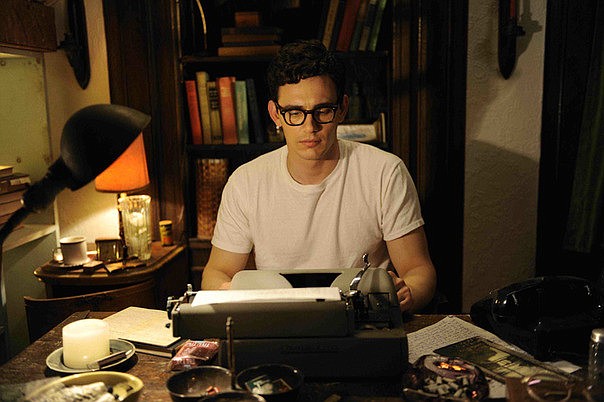- April 16, 2024
-
-
Loading

Loading

The new film "Howl" is entirely unique in its premise. It gives life to a poem: a groundbreaking, book-length poem, which launched an obscenity trial in 1957. Its author, the counterculture icon Allen Ginsberg, is honored in this intellectual and fascinating piece of filmmaking commemorating the 50th anniversary of "Howl's" publication.
In their scripting, producing and directing debut, Rob Epstein and Jeffrey Friedman create a "dramatized essay" on Ginsberg's controversial poem. It gives amazing insight into how Americans stood on the definition of obscenity in the 1950s. It also depicts how homosexuality was equated with insanity.
When Ginsberg was a struggling artist at age 30 (1956), Lawrence Ferlinghetti published "Howl and Other Poems," which resulted in an obscenity trial set in San Francisco. Prior to that, Ginsberg had been institutionalized for nine months for being gay. As the poem and Ginsberg's life play out in the film, it's startling to witness the fact that people had such archaic ideas a mere 60 years ago.
"Howl" is also a visual tribute to Ginsberg's work. It's shot in black and white, as well as in color.
Outstanding are stunning animated sequences played out as the actor portraying Ginsberg narrates.
That actor, the gifted James Franco, could not have been more perfectly cast. Reading his poems in character and responding to a lengthy interview (using Ginsberg's own words), Franco embodies the infamous/famous bard. He draws you into the psyche of a talented and tormented individual so profoundly, it's heaven to watch. It is one of those predictable small audience/big payoff performances destined for an Oscar nod.
"Howl" (the poem) was eventually found to be of literary value in a court of law and, thus, not obscene. It catapulted Ginsberg's hallucinatory work into receiving worldwide attention. It helped pave the way to a more open-minded society and freer speech. As the judge who presided over Ginsberg's trial so astutely observed at its conclusion, "Evil to him who evil thinks." Right on.